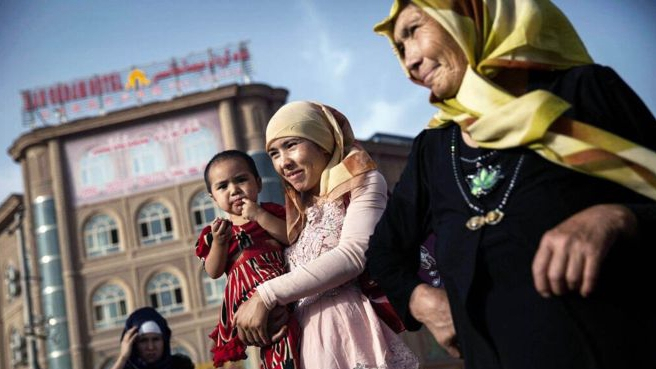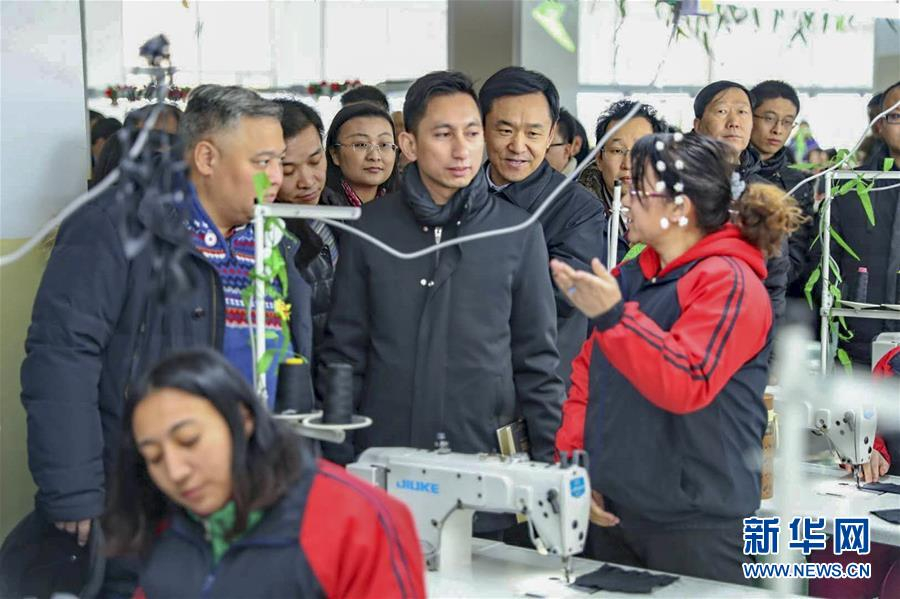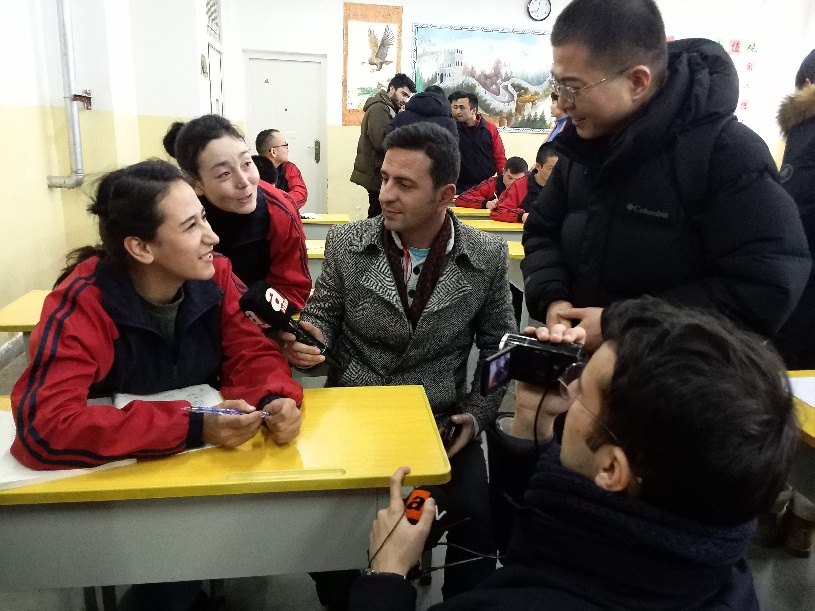
Analysis
22:58, 11-Feb-2019
Analysis: Turkey should stop targeting China on Uygurs issue
Updated
11:24, 12-Feb-2019
Jiang Bei

Editor's note: Jiang Bei is opinion editor with CGTN Digital. The article reflects the author's opinion, and not necessarily the views of CGTN.
In a strongly-worded statement Saturday, the Turkish Foreign Ministry spokesman Hami Aksoy denounced China's “re-education camp” in Xinjiang as a "great shame for humanity." It is not the first time that Turkey has made judgements on China's Uygur issue based on the close lineage, language, culture and religion shared by Turkish and Uygurs. However, it turns out to be a misjudgment that doesn't hold water.
The fuse that detonated Turkish diplomatic reaction is the reported death of Abdurehim Heyit, an Uygur musician who was detained on suspicion of endangering state security. But according to a video released by China Radio International on February 10, Heyit is not only alive, but also claim himself in “good health.” The ill-founded “death” seems only an excuse to Xu Jianying, an expert in Xinjiang study from the Chinese Academy of Social Sciences, “Turkey has never given up meddling in Xinjiang.”
Another incorrect premise from Turkey is the so-called “re-education camp”, or even “concentration camp” where they believe two million Uygurs are imprisoned. But the truth is that the “camps” are merely vocational education centers aimed at educating Uygurs on national common language, laws and vocational skills so they can obtain better employment and maintain social stability in Xinjiang.

The diplomatic envoys talk with a student in the vocational training center in Kashi, Xinjiang Uygur Autonomous Region, on December 29, 2018. /Xinhua Photo
The diplomatic envoys talk with a student in the vocational training center in Kashi, Xinjiang Uygur Autonomous Region, on December 29, 2018. /Xinhua Photo
With students being able to go home once a week and free to speak to their families on the telephone, personal freedom is guaranteed in the centers. As the spokesman of Chinese embassy in Turkey said on February 10, some Turkish media reporters visited these centers in Xinjiang this January for on-the-spot coverage. Many of them found students there satisfied with their learning instead of forced assimilation and thereby removed their prejudices. One of the reporters, Tugcenur Yilmaz from the Anadolu agency, said in an interview with Xinhua agents, those lessons students received in the centers played a crucial role in eliminating extremist ideas.
In fact, it is not a new attempt to set up centers to dispel extremism and counter terrorism. The French government opened 12 planned de-radicalization centers in September 2016, with the goal of rehabilitating individuals who may be early on the path to radicalization. The U.S. is also trying to use community to rehabilitate young people who are affected by extremist ideas. There is no difference between China's vocational education centers and other countries' practices. The only difference is whether the Turkish government perceives it with bias.

Foreign media reporters interview students in the vocational training center in Kashi, Xinjiang Uygur Autonomous Region, January 13, 2019. /Xinhua Photo
Foreign media reporters interview students in the vocational training center in Kashi, Xinjiang Uygur Autonomous Region, January 13, 2019. /Xinhua Photo
The bias is rooted in the long history of Turkey's interference in the Uygurs issue and its undying desire to expand influence in Xinjiang under the Pan-Turkism ideology. According to Xu Jianying, Turkey's political and religious penetration into Xinjiang can date back to Qing dynasty. Since then, Turkey has never stopped its efforts to influence Uygurs, including providing shelter for 'East Turkistan' terrorist forces which planned many notorious terrorist attacks in China.
Ever since the armed insurrection in the town of Baren in 1990, China has been paying huge efforts to curb the 'East Turkistan' terrorist forces. Under the Belt and Road initiative, Turkey finally included the East Turkistan Islamic Movement in the terrorist list in 2017. But it has never cut off the emotional attachment with Xinjiang, making the intervention in Xinjiang always an option on the table, Xu said.
(If you want to contribute and have specific expertise, please contact us at opinions@cgtn.com)

SITEMAP
Copyright © 2018 CGTN. Beijing ICP prepared NO.16065310-3
Copyright © 2018 CGTN. Beijing ICP prepared NO.16065310-3